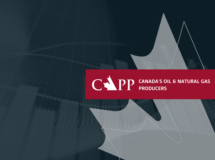
How safe are tankers?
In the offshore Newfoundland and Labrador, Basin Wide Transportation and Transshipment System (BWTTS) was developed by offshore producers to schedule and transport their crude oil from offshore to Newfoundland Transshipment Limited facilities or other discharge ports. On Canada’s west coast, tankers are under the command of an experienced local pilot who knows local waters. All […]

What are greenhouse gas emissions?
Greenhouse gas (GHG) emissions are produced when hydrocarbons such as oil and natural gas are burned. GHGs include carbon dioxide (CO2), methane, nitrous oxide and ozone. Most GHG emissions are released at the end-user stage when consumers burn oil and natural gas for heat, electricity, transportation, manufacturing and other uses. However, the production of oil […]

What is methane?
Methane is the main component of natural gas. By volume, global methane emissions are lower than carbon dioxide emissions. However, methane is more potent in its ability to trap heat in the atmosphere, so it’s important to identify methane emissions and take action to prevent or reduce these emissions.

What are flaring and venting?
Flaring and venting involve the release of gases, including carbon dioxide and methane, into the atmosphere. These releases are sometimes necessary as part of safe operations. Flaring is the controlled burning of waste gases from oil and natural gas operations. Venting is a controlled release of unburned gases into the atmosphere, such as natural gas […]

How is the oil and natural gas industry addressing climate change?
Canada’s oil and natural gas industry has demonstrated a commitment to investing in environmental protection and GHG reducing technologies in a world that demands a lower emissions future. Continued investment in innovation and technology is helping drive down emissions intensity and positions Canada’s energy industry as part of the global solution needed to tackle the […]

What is carbon capture?
The process of capturing carbon dioxide (CO2) produced from burning or processing oil or natural gas, and storing the captured CO2 in underground rock formations, is called carbon capture and storage (CCS). If the captured CO2 is used in enhanced oil recovery or other processes that permanently remove the CO2 from the atmosphere, the process […]

How do Indigenous communities engage with the oil and natural gas industry?
Canada’s oil and natural gas industry has a long history of interacting with Indigenous peoples and has made great strides toward learning, developing relationships, and sharing benefits from resource development. The industry acknowledges the importance of Indigenous reconciliation in Canada and believes natural resource development can play a role in the broader Canadian reconciliation process.

CAPP Statement on BC Budget 2024 – First Nations Equity Financing Framework
“CAPP is pleased to see the inclusion of the First Nations Equity Financing Framework in BC Budget 2024. This commitment to co-develop an Indigenous Loan Guarantee Program with First Nations and the federal government will ensure that Indigenous communities can finance an equity stake in projects."

CAPP’s response to Canada’s 2030 National Biodiversity Strategy Milestone Document
